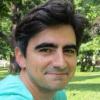My research interests are in the history of economic journalism and the uses of economics in the public sphere. I have published research articles in the journals History of Political Economy, Science in Context, Journal of the History of Economic Thought, Journal of the History of the Behavioral Sciences, and Minerva. I post my research work and a few other writings on my website. I concluded my PhD from the London School of Economics in 2006 on the origins of dissenting economics in North America, the thesis is forthcoming as a book. I have been an organizer of the Conference on the History of Recent Economics (HISRECO) since 2007, and was a co-organizer of the 2010 meetings of the European Society for the History of Economic Thought (ESHET). I am currently the principal investigator a European Research Council funded project on the history and sociology of economic journalism, titled “Economics in the Public Sphere”. I am based at the Department of History and Philosophy of Science at the University of Cambridge.
Tiago Mata

By this expert
Three Questions to Judy Klein
Judy Klein is Professor of Economics at Mary Baldwin College in Virginia. She is the author of Statistical Visions in Time: A History of Time Series Analysis 1662-1938, (Cambridge 1997) and co-editor of The Age of Economic Measurement (Duke 2001), and co-author of The Strange Career of Cold War Rationality (in preparation)
Professor Ponzi, or thinking about the methodology, the sociology and the economics of economics
I am writing from my notes. The event I want to report took place some two months ago, I have since been preoccupied, then occupied, and now increasingly overwhelmed.
Roger Backhouse and Bradley Bateman: How can history stimulate new economic thinking?
The following text was sent to us by Roger Backhouse and Bradley Bateman, we reproduce it in its entirety.
@Academia and Public, Berlin: Students as model publics
The transatlantic conference has been moving targets: sociology went first, then economics, then history, today it was political science and international relations.